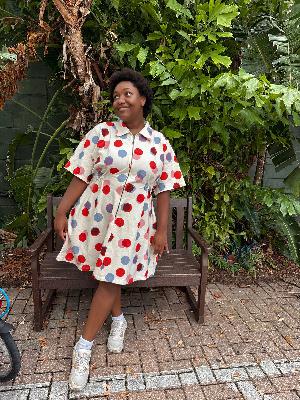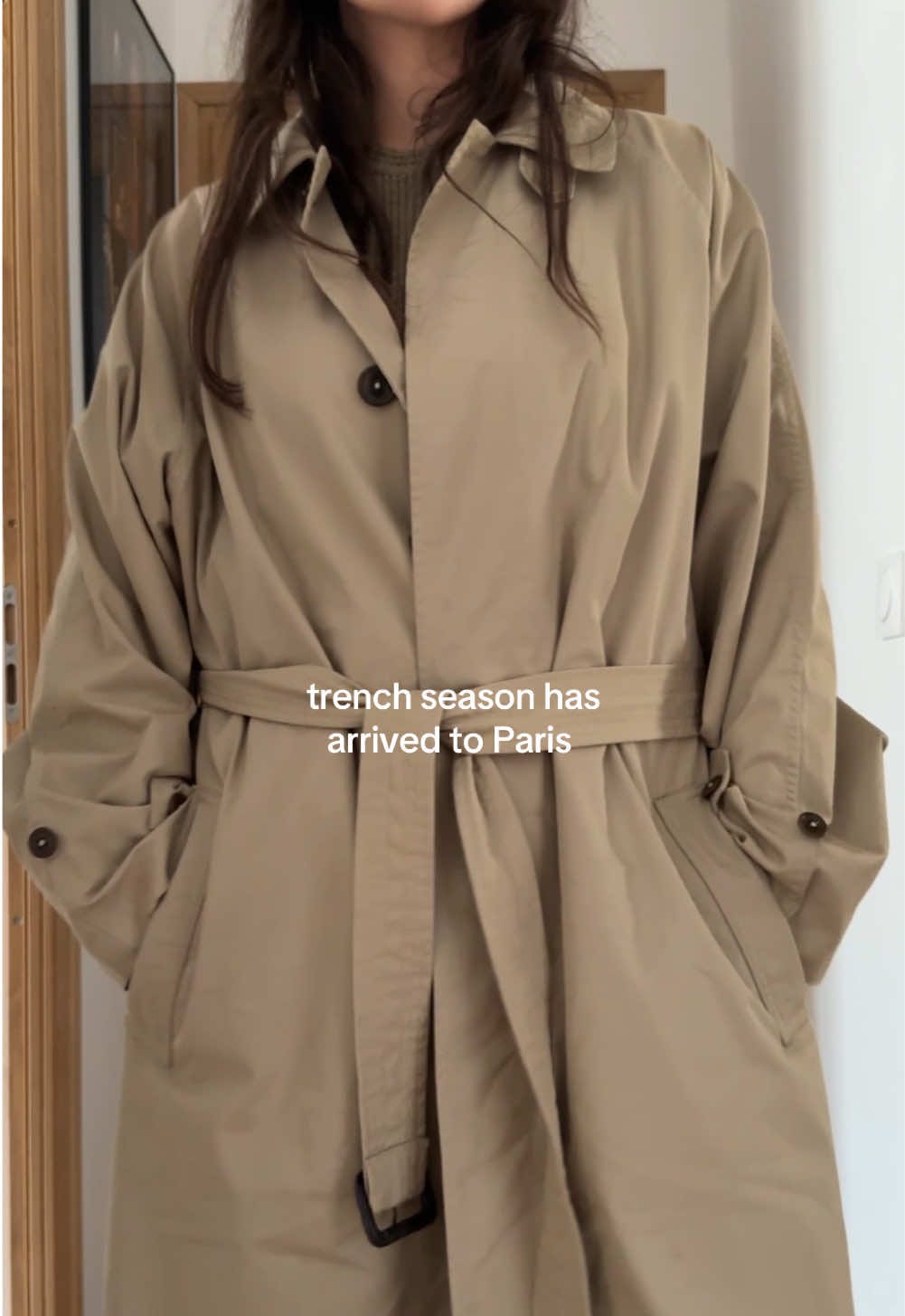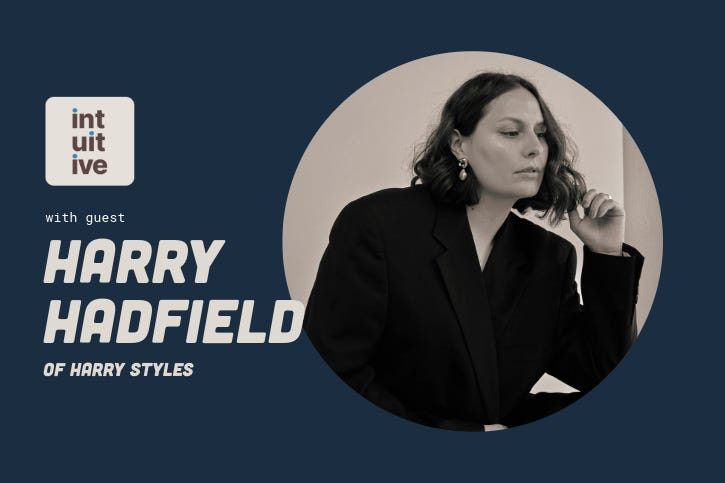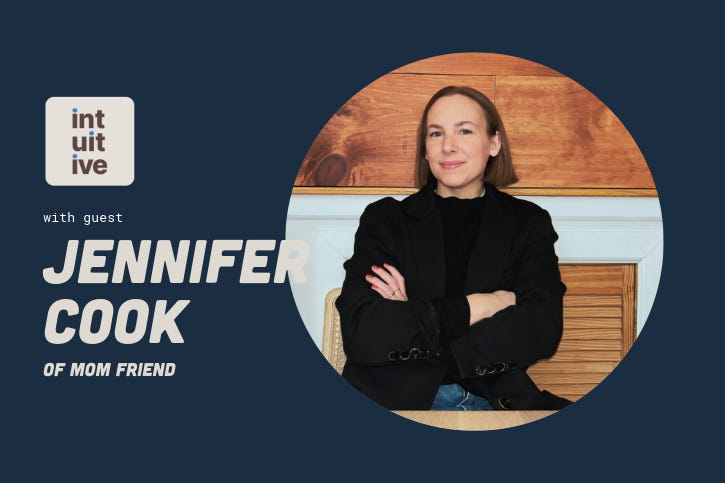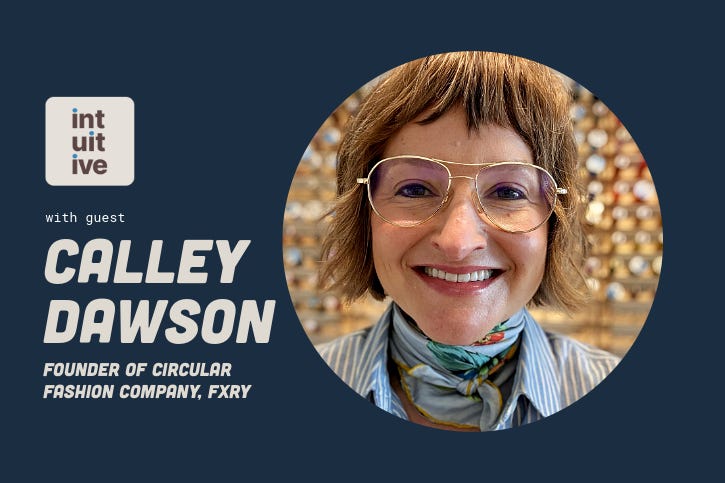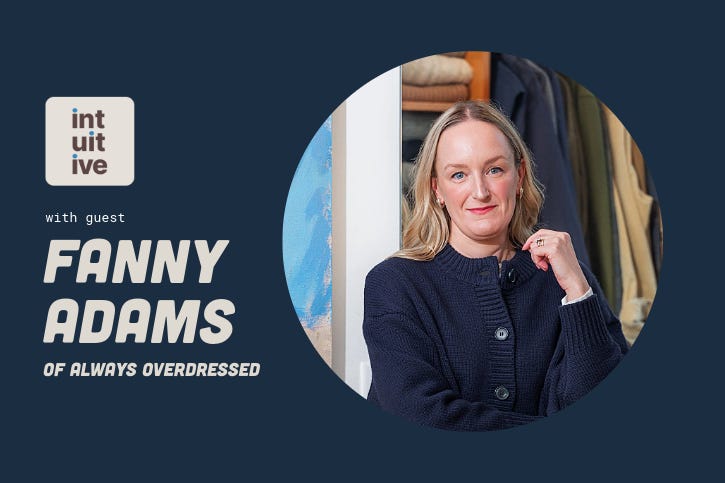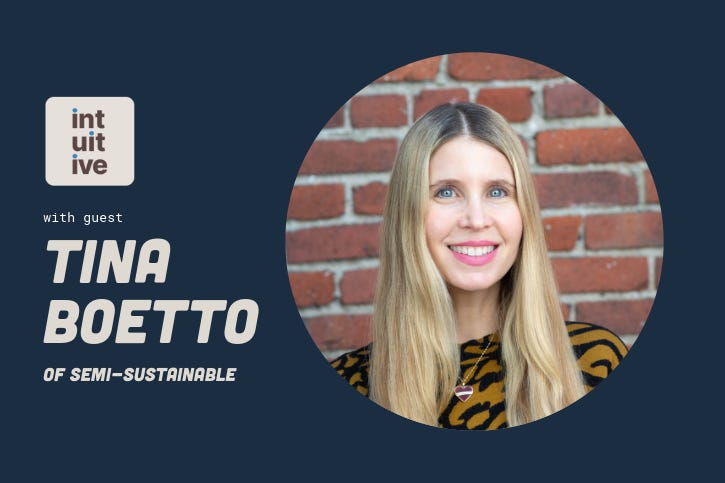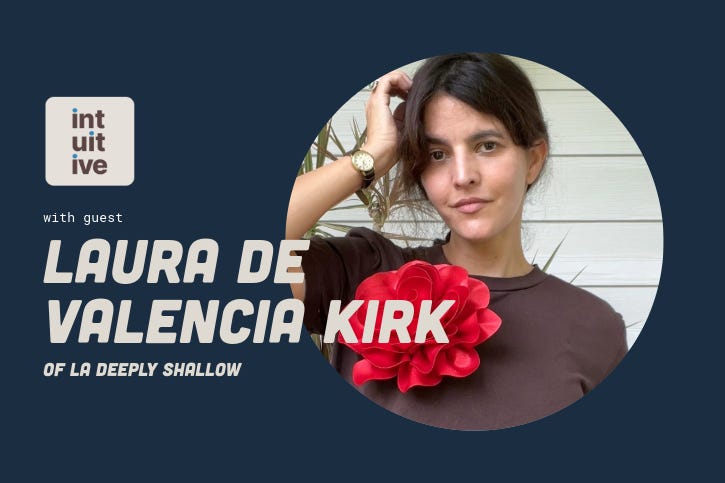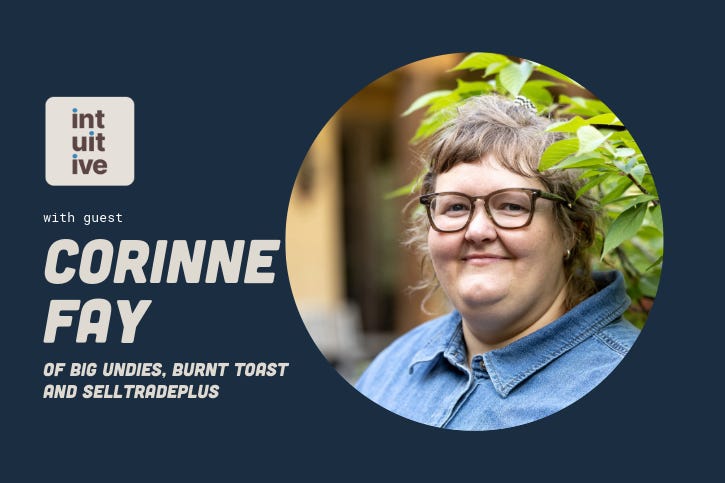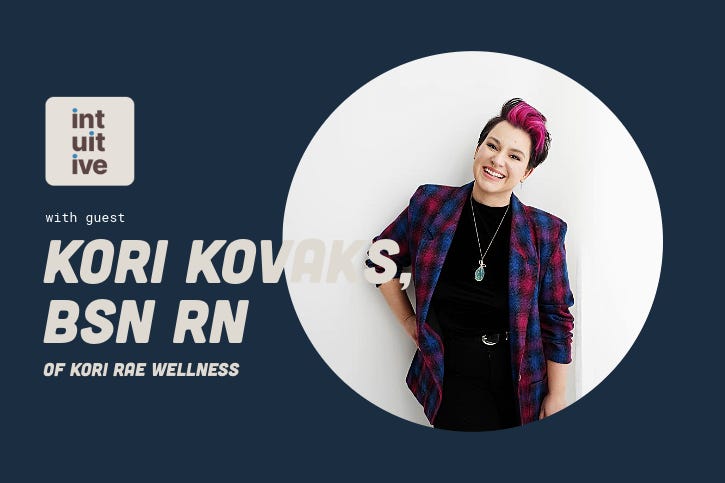Episode 11. Being gentle with ourselves, with Sushmita from Ethical Fat Fashion
Description
Sushmita and I cover the identity politics of slow fashion, unequal access to ethically made clothing, and how Sushmita is ready to be gentler with herself.
Episode Transcript
This transcript has been edited for clarity.
You're listening to Intuitive Style, where we believe everyone has style. In conversation with fantastic guests, we explore how to tap into our style intuition so that we can dress authentically and live fully.
Today's guest, Sushmita , is the writer and artist behind Ethical Fat Fashion . She's well known for her size-inclusive ethical fashion brand directory, zines, and fashion/political commentary.
Welcome to the show, Sushmita!
Sushmita: Thanks, Maureen. It's so nice!
Maureen: Yay! Yes, I'm so happy that you decided to come on.
To kick things off, I love the mission behind your newsletter, Ethical Fat Fashion. For anyone unfamiliar, can you share what EFF is all about?
Sushmita: Yeah, of course. I mean, it's been a few years, and I'm still figuring it out, but Ethical Fat Fashion started off as a brand directory. This was 2021, 2022. I was sourcing size-inclusive and size-diverse brands—brands that started from a 2X or a US 20. From there, I switched to Patreon and started making digital zines, exploring a whole host of different issues. I was talking about body image, movie reviews—anything and everything I wanted to put in there, I did.
That eventually brought me to Substack last year. I wanted something more frequent. The zines were seasonal, but now I post every single week, and the content changes all the time. The thread running through it is the idea of ethical fashion, but I’m looking at it from different angles—especially how our bodies and fashion connect, including how we view ourselves and how that affects how we dress.
Maureen: Yeah, absolutely. I think it’s so true. And I certainly experience this as a writer on Substack myself—it can be hard to pin down into one thing. But that can also be the fun of it!
We're allowed to explore different aspects of who we are and of a particular topic, and I think you manage that really well.
In one of your more recent posts, you compared slow fashion to diet culture (aware of Virginia Sole-Smith), which really resonated with me—especially how you acknowledge the reality that participating in slow fashion has been elevated to a high moral status while simultaneously excluding so many people, particularly fat people.
What compelled you to write this post at this time?
Sushmita: These are really scary posts to put on the internet—especially in leftist spaces, where everybody is aiming for this moral purity. If you add any kind of complexity, you can become a target.
I was scared to write about it, but I think Substack allows for long-form content rather than just 140 characters or less. It lets us balance perspectives.
Hopefully, I was able to separate the idea of fashion justice from what we see as "sustainability" or "slow fashion" as a brand or an identity—because those are two very different things.
Fashion justice is about better conditions for garment workers and ensuring they have living wages. I don’t think anyone is against that. I really don’t. But the means to achieve that—the current slow fashion or ethical fashion movement—has such a heavy focus on consumerism. It’s become identity-focused rather than actually looking at how we can achieve that outcome.
I wrote this post after a series of revelations over the last couple of years. I started to feel more separated from the narratives that kept being repeated on the internet.
One of the big shifts for me was material envy, which I talk about a lot. I saw someone very prominent in the space admit how much they owned, and I realized I owned maybe a quarter of that. The difference between our wardrobes was startling, and I had this feeling inside me—why can’t I have that abundance? Why am I not deserving of beautiful clothes?
Another shift was recognizing the difference between identity and outcome. We're not really having conversations about how we can help garment workers. And I include myself in this—we, as consumers, have taken over the conversation. It’s almost a saviorism narrative: We in the Global North are going to help these poor garment workers.
Maureen: Yeah, yeah.
Sushmita: But the reality is that garment workers are already trying their absolute hardest to advocate for themselves. That’s why trade unions exist.
Many of them are dealing with governments that, even if they have laws in place to protect workers—especially women—those laws aren’t effective. Sexual harassment in factories is a huge issue, and we, as consumers, cannot fix that just by buying differently. We are not in the factories. We cannot protect these workers simply through buying differently.
Maureen: I'm getting chills.
Sushmita: Yeah.
Maureen: I so agree. I did not mean to cut you off, though!
Sushmita: No, no, it’s totally fine. It’s a conversation! But a lot of these things I haven’t said out loud before, so I’m still forming these thoughts as I speak.
I just feel like we’ve created this belief that we can buy our way into saving garment workers. And I don’t connect with that narrative anymore. Instead, I’m thinking about what actions we can take beyond consumerism to support garment workers.
One thing that’s been on my mind is that, due to the new [United States] administration, one of the key trade alliances in Bangladesh, Awaj Foundation, lost 20 to 30% of their funding. We could directly give them money.
That would be more powerful than tweeting or posting online, shaming other people about their consumerism.
Maureen: Oh my gosh. Yes. Yes.
We’re so aligned, and this is part of the reason I wanted to have you on the show right now.
I’ve been a consumer of slow fashion content for a long time, and I think the early voices in this space raised important issues. They brought awareness to things people didn’t know about.
And to their credit, a lot of work has gone into that awareness—helping us be more conscious of what we buy and why.
But I also think it’s gone too far, to your point. It’s become about identity rather than outcome.
I would love to hear you talk more about the identity of being a "slow fashion person." Why do you think that has resonated so much with creators?
Sushmita: I think it follows what we already see in leftist spaces, where our identities become the whole of us.
For me, the biggest issue is this all-or-nothing thinking. Either you’re buying ethically, or you’re not. Either you’re a "reformed shopper," or you’re not. There’s no in-between.
I struggled with my own consumerism because I couldn’t afford the things I wanted to buy, and I didn’t give myself any grace.
I had spent years building a platform against fast fashion, and unfortunately, the majority of the fashion industry—99% of it—still operates with fast fashion tactics. Maybe not at the same production scale, but there’s still a lot of opaqueness.
It’s really difficult to be a responsible consumer.
And I wouldn’t allow myself to step outside of those boundaries. I had all these limitations. I still have these limitations.
But I was so scared of tarnishing my identity as someone who promotes ethical fashion.
And yet, the whole concept of ethical fashion is actually very, very complicated. People want you to believe that being a responsible consumer is so damn easy. It's just about, you know, choosing the right brand. And now that I've been in this space for a really long time, I’ve been contacting brands that claim to be size diverse or care about inclusivity or sustainability.
There are brands that use socially audited factories and have longstanding relationships with their factories, but that doesn’t necessarily mean they pay living wages. There are small businesses that have zero relationship to their makers. I’ve reached out to them, and they’ll be like, “No, we have no idea which factory we produce at.”
And there's just so much ethics-washing. There's small-business-washing as well. There are brands that are obviously a lot larger than they make themselves out to be. And it's absolutely impossible to always make the right decision when businesses themselves are not being transparent with consumers. A lot of these businesses actually say that they’re ethical or sustainable, but nobody really wants to talk about that aspect.
So not only is it difficult to be responsible when it comes to not buying from 99% of fashion, but it's also difficult when you are only buying from ethical brands because ethical is not regulated.
Maureen: Right. It's like the word "organic" in the United States. What does organic mean? Okay, well, organic means that it’s made out of earth-created materials.

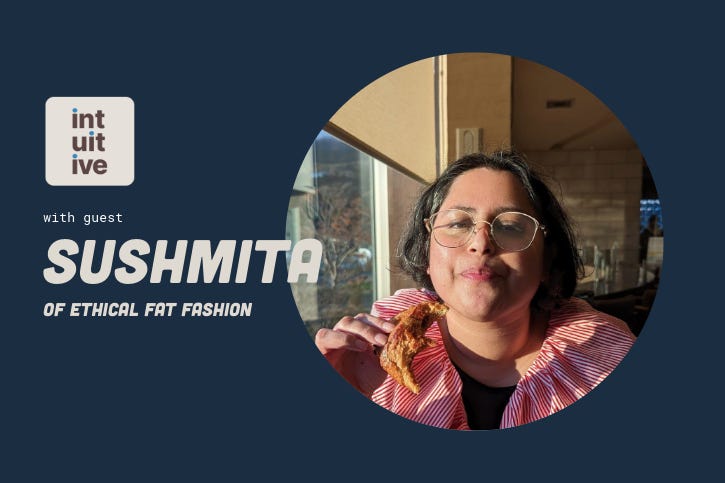
![Episode 24. Rambling in [Intuitive] Style, with Traci Landy Episode 24. Rambling in [Intuitive] Style, with Traci Landy](https://substackcdn.com/feed/podcast/2669400/post/177614968/9bbc5a3f73fab5e46b0a064fb5bff6b4.jpg)
